Projects
The perspective of projects
Project OASIS
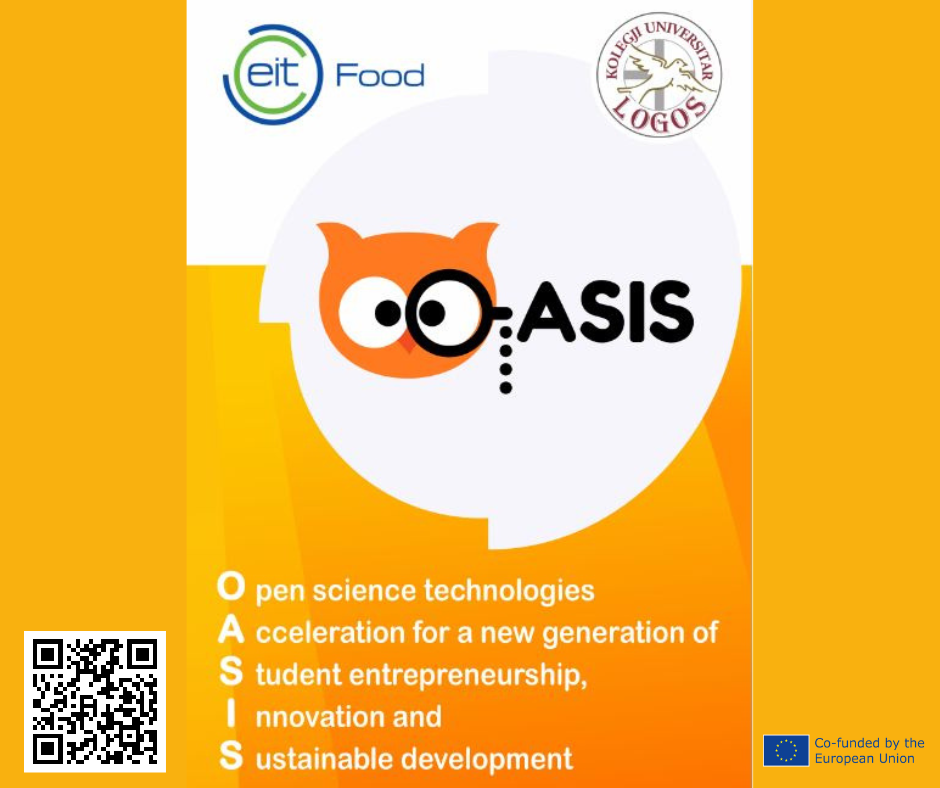
KU LOGOS is happy to announce that it will be taking part in a new project called OASIS. The project aims to develop and share support capabilities in the area of open science (OS) to drive the EU’s digital transformation and sustainable development. The project facilitates the adoption of OS technologies in education through practical applications, training, and mentoring activities for the management of real educational and labour oriented problems with an aim to increase openness in intellectual property.
The project will receive funding from the EIT HEI Initiative: Innovation Capacity Building for Higher Education. This initiative of the European Institute of Innovation and Technology (EIT) aims to boost the entrepreneurial and innovation capacity of higher education institutions (HEIs) across Europe. The involvement of non-academic organisations like [COMPANY NAME] is an important part of the initiative, as it creates important synergies between industry and HEIs.
As part of this project, we will be working together with the following partners:
- UNIVERSITY OF PELOPONNESE - project lead
- KOLEGJI UNIVERSITAR LOGOS
- UNIVERSITA DEGLI STUDI DI CAMERINO
- SOFIA UNIVERSITY "ST. KLIMENT OHRIDSKI"
- EUROPEAN FORUM OF TECHNICAL AND VOCATIONAL EDUCATION AND TRAINING
- ATHENA RC / INDUSTRIAL SYSTEMS INSTITUTE
- INTELLIA INFORMATION AND TELECOMMUNICATION SYSTEMS PRIVATE COMPANY
- AI 4 SKILLS SRL - SOCIETA BENEFIT
- MeXoXo - associated partner
Under the EIT HEI Initiative, the project will receive funding of 3ooK€, and it will run until December 2022, with the possibility of getting extended for 18 more months.
Stay tuned for more information about this project in the coming months!
About the EIT HEI Initiative
The EIT HEI Initiative is a key objective for the European Institute of Innovation and Technology as part of its new strategy. The initiative aims to support HEIs with expertise and coaching, access to the EIT innovation ecosystem, the largest in Europe, and funding, enabling them to develop innovation action plans complementing the needs of individual HEIs. This is the EIT HEI Initiative's second call for proposals, following the success of the 2021 Pilot Call. So far, the initiative has provided funding to nearly 50 projects. The next call for proposals is expected towards the end of 2022.
About the EIT
The EIT strengthens Europe's ability to innovate by powering solutions to pressing global challenges and by nurturing entrepreneurial talent to create sustainable growth and skilled jobs in Europe. The EIT is an EU body and an integral part of Horizon Europe, the EU Framework Programme for Research and Innovation. The Institute supports dynamic pan-European partnerships, EIT Knowledge and Innovation Communities, among leading companies, research labs and universities.
University College LOGOS participates in the inception meeting of the MAGNET project
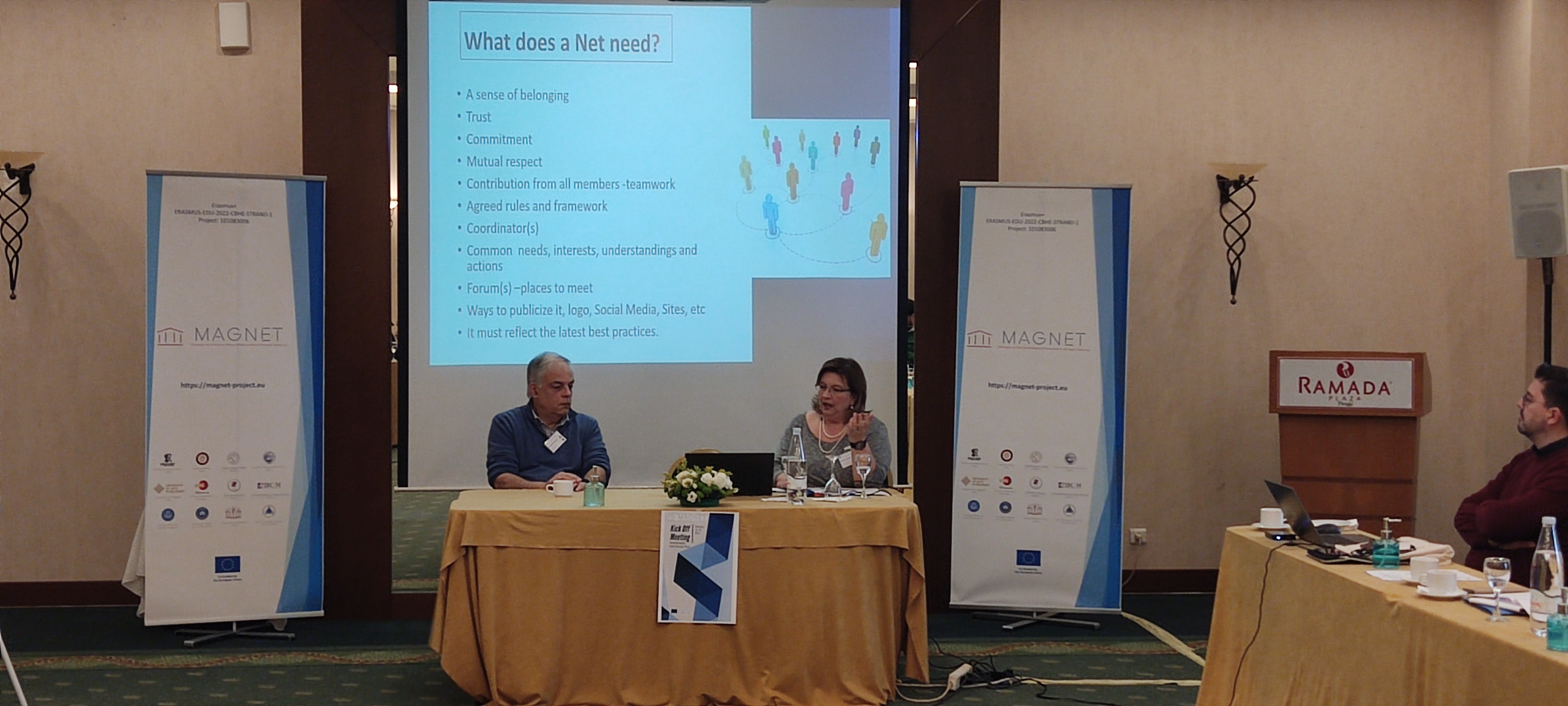
University College LOGOS participates in the inception meeting of project No. 101083006, ERASMUS+ KA-2, on Capacity Building in Higher Education, MAGNET (Managerial and Governance Empowerment through Teaching and Learning) which was held on 16 - 17 February 2023 at Democritus University of Thrace in Alexandroupoli, Greece. Dean of Faculty of Humanities and Linguistic Communication, Assoc. Prof. Konstantinos GIAKOUMIS and Dr. Valbona Nathanaili, member of the Department of Pedagogy and Psychology, as representatives of LOGOS were involved in the process of reflection and organization of the project activity.
ERASMUS+ KA-2 Project, on Capacity Building in Higher Education, MAGNET aims to raise awareness and buld structures for the development of university pedagogy. University pedagogy, developed mainly through the operation of Centers for Teaching and Learning (CTL), is the main pillar for the actualization of European Higher Education Area. MAGNET project aims to develop a network for University Pedagogy in the Western Balkans through knowledge transfer from countires with functional Teaching and Learning Centers to all countries and partner institutions. The main objectives include transfer of knowledge and experiences, creation of CTLs, generation of educational materials (MOOC) and a sustainable Balkan network for University Pedagogy (Balkan Network for University Pedagogy - BalkanNetUP).
University College LOGOS collaborates in all aspects of the project led by the Democritus University of Thrace, and leads Work Package IV related to Quality Assurance. Involvement of LOGOS in European projects is included in the strategic plan for the internationalization of the institution.
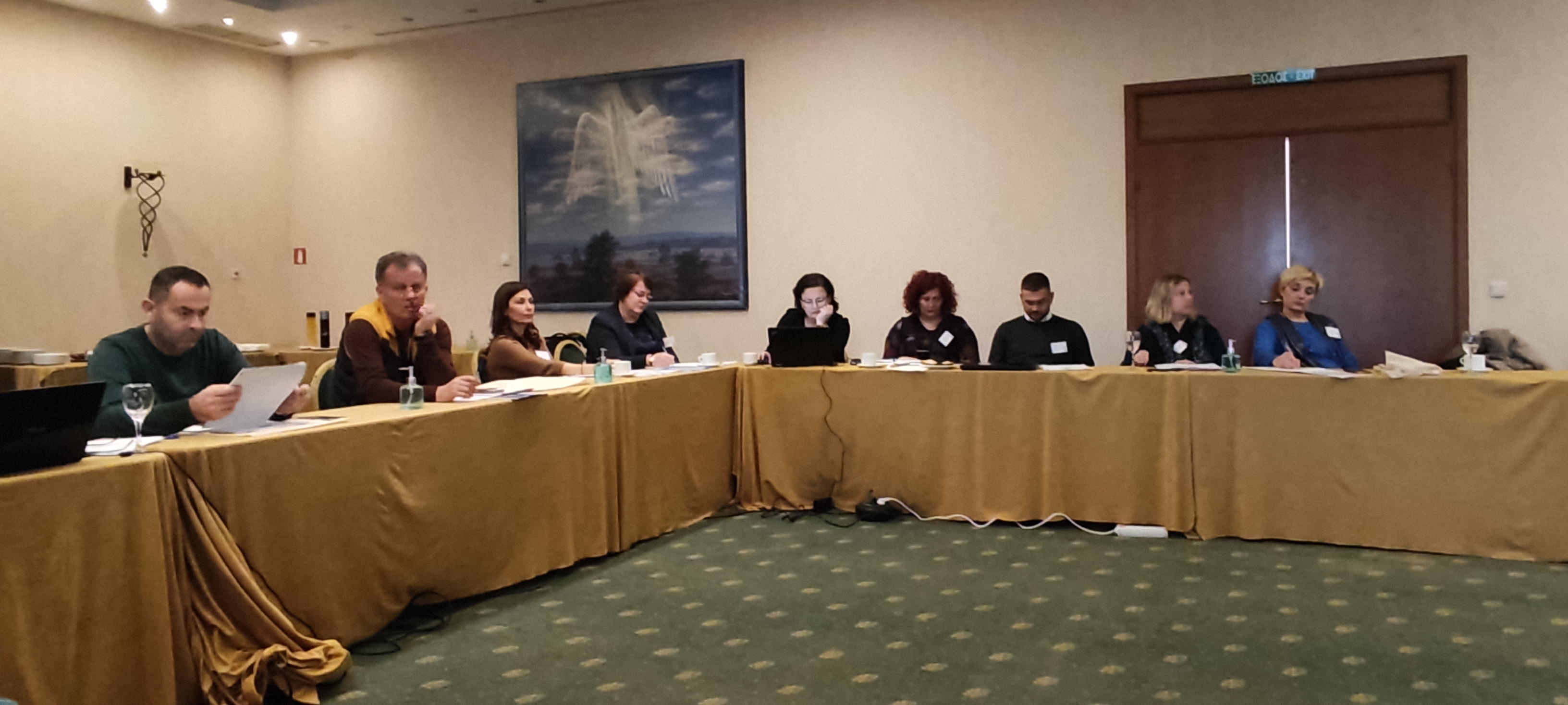
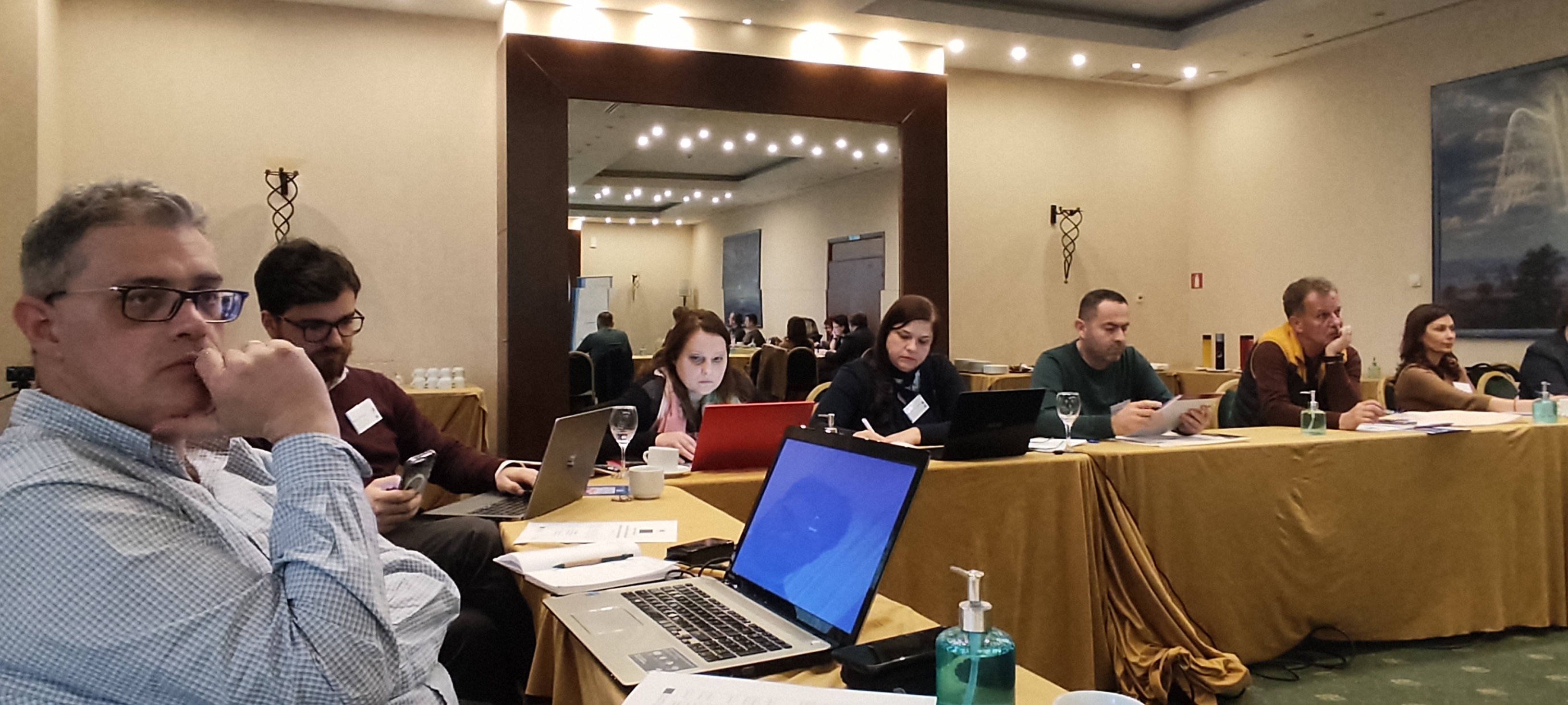

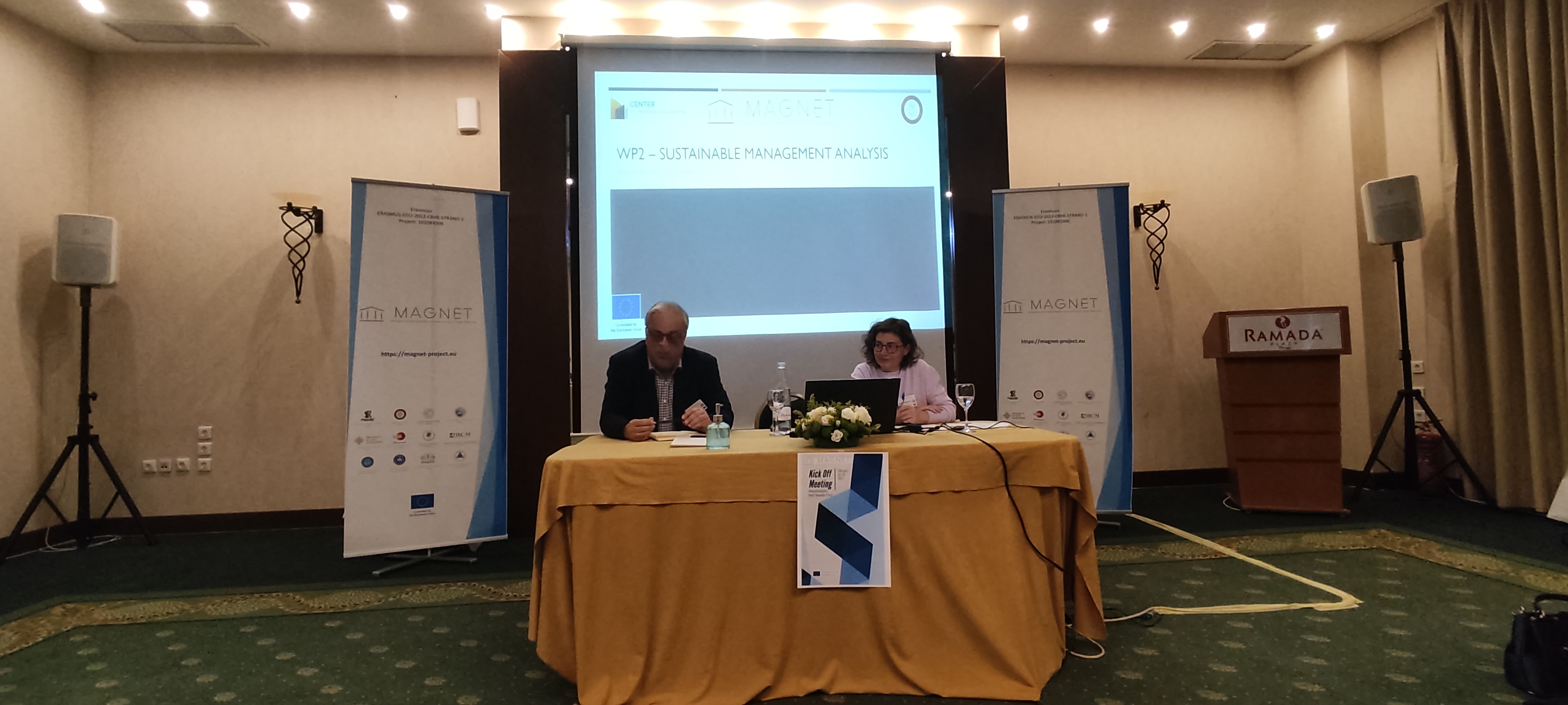
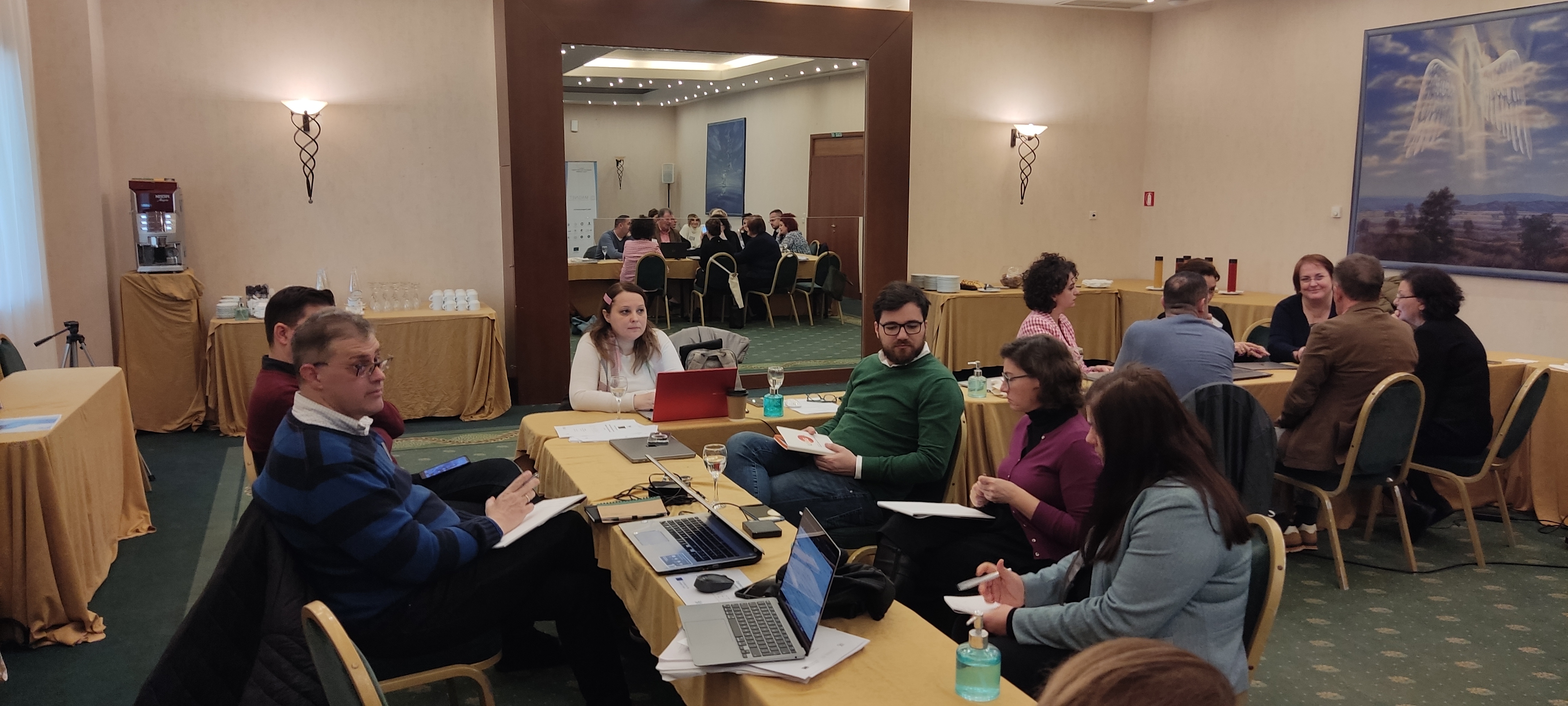
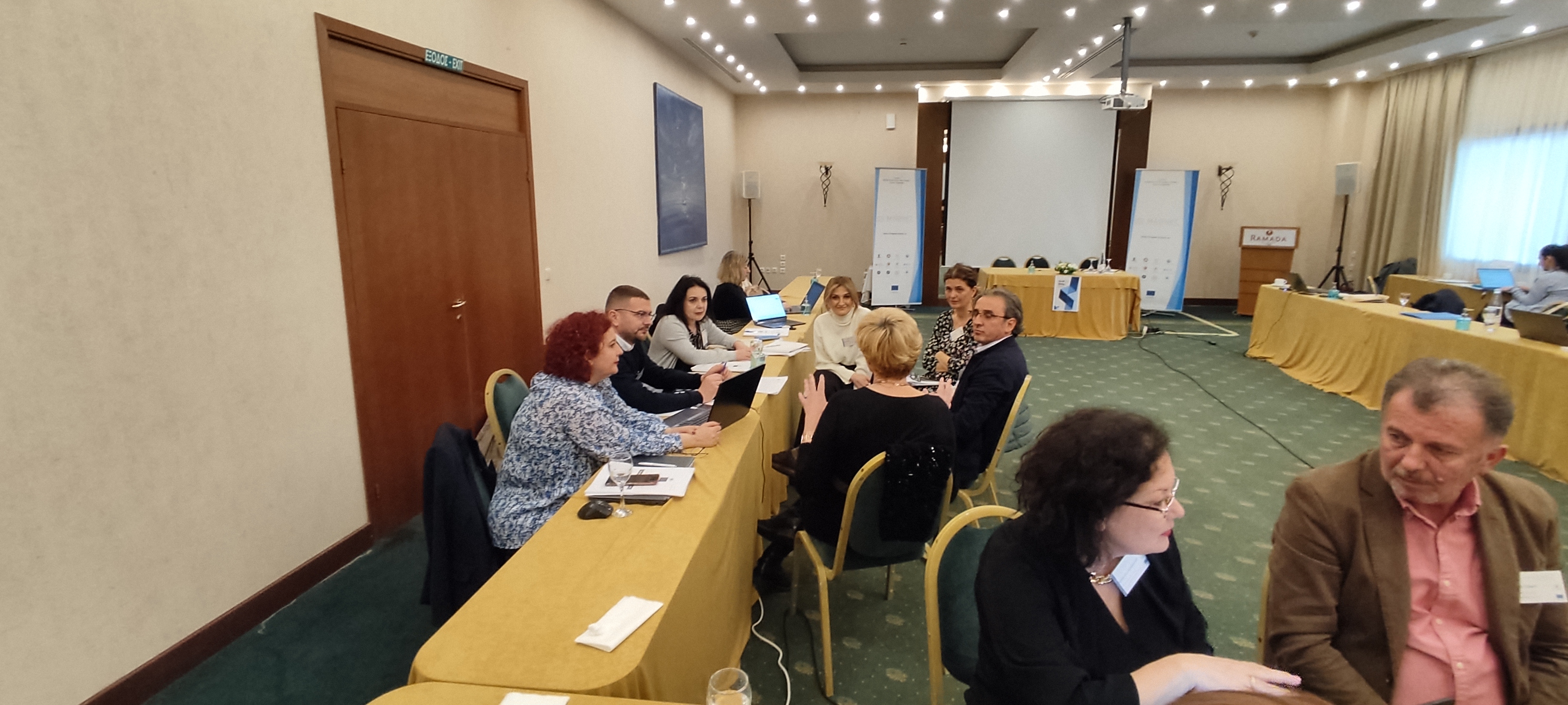
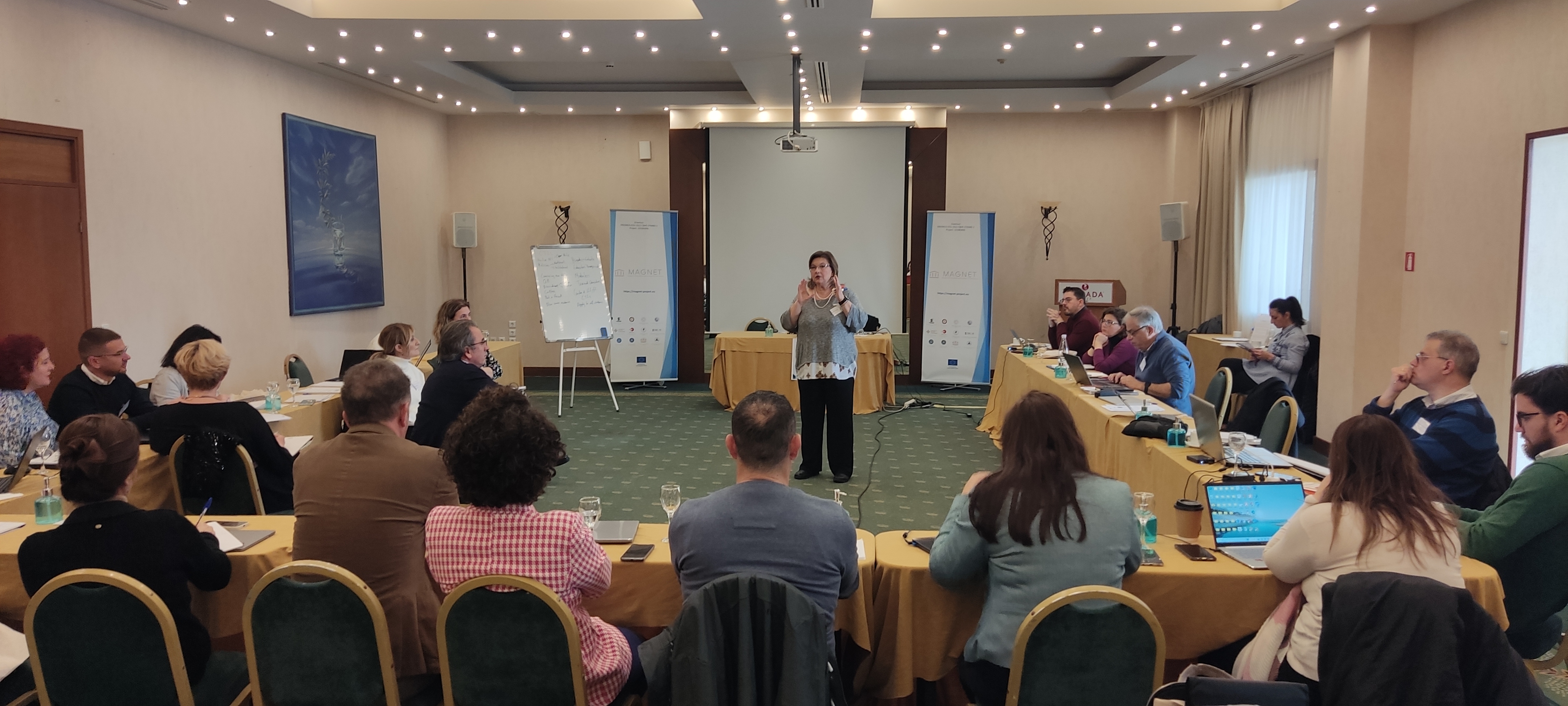
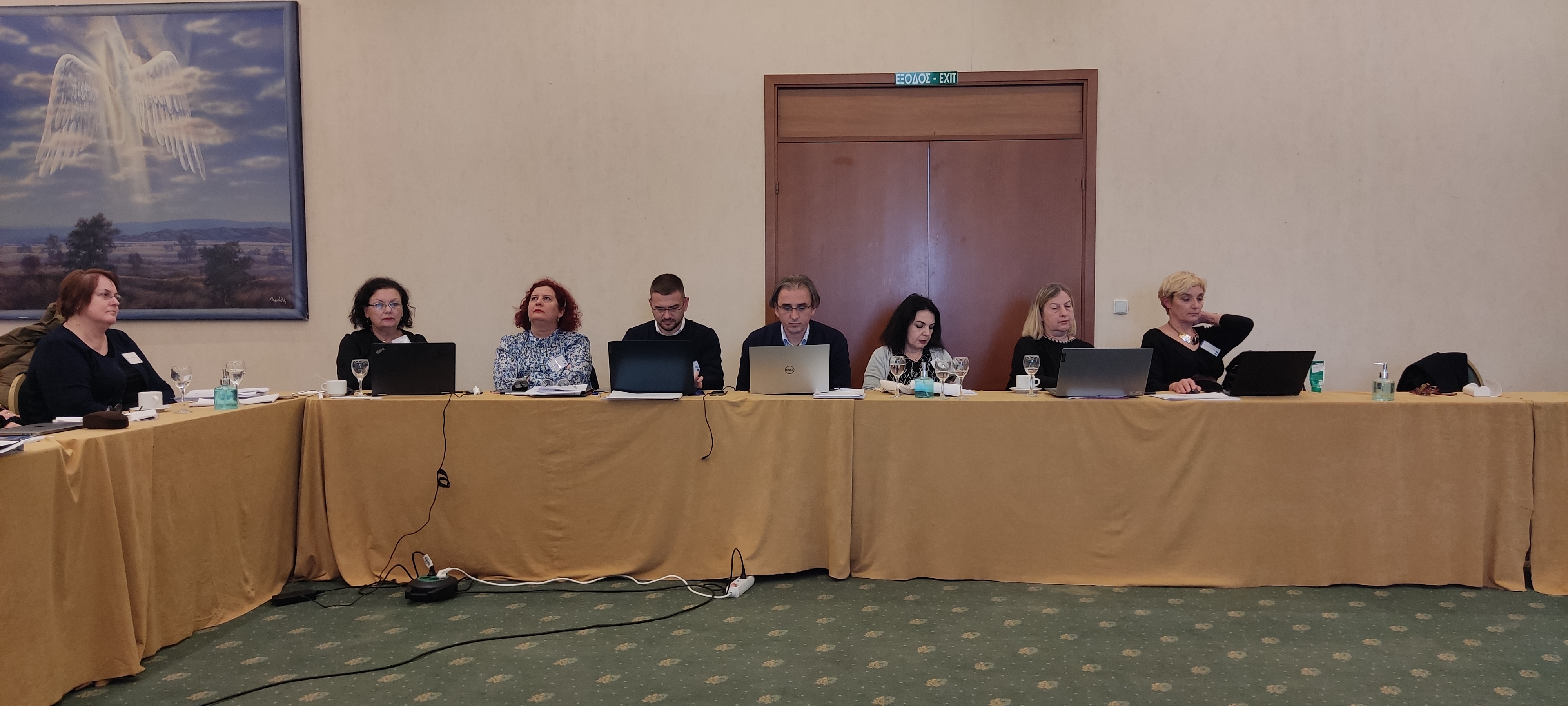
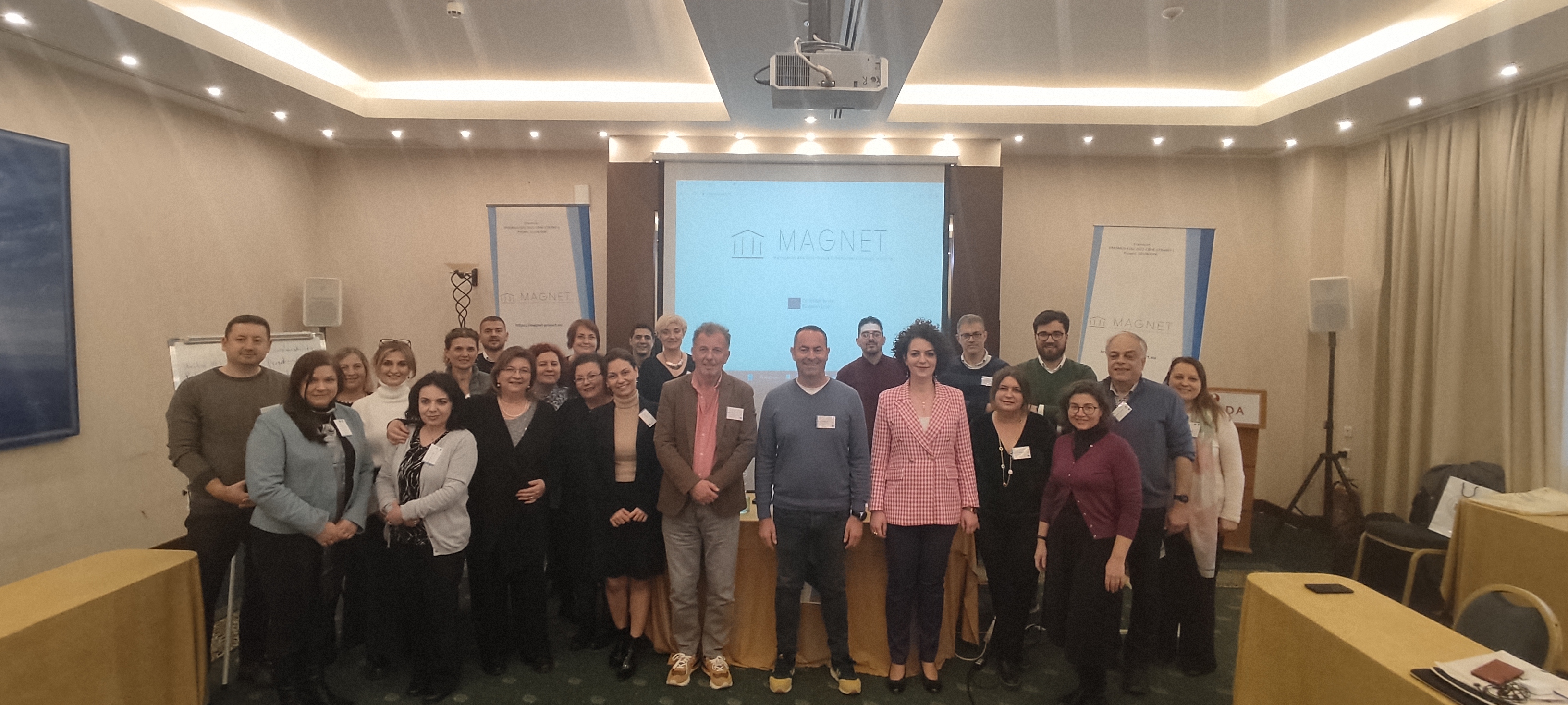
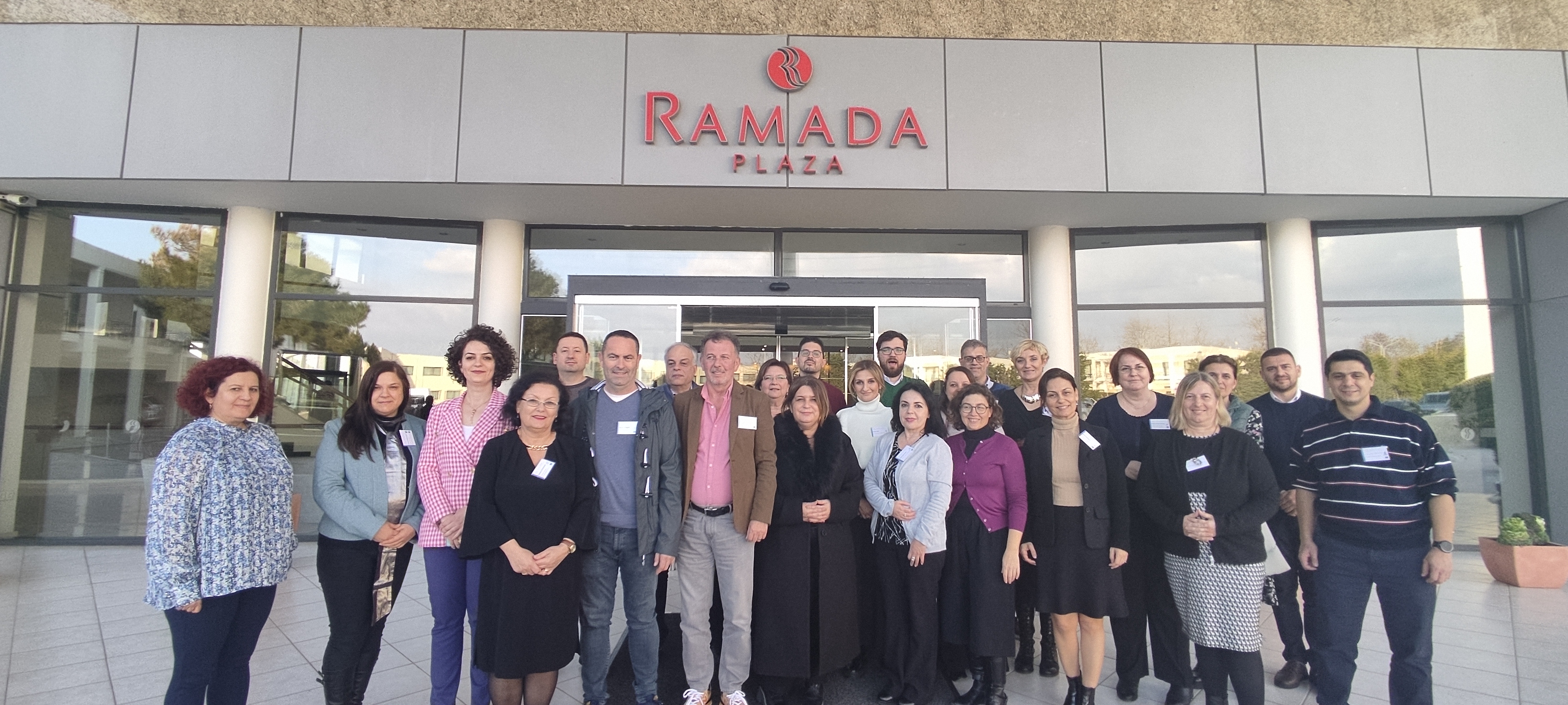
Improving Management and Governance of Higher Education Institutions for better teaching
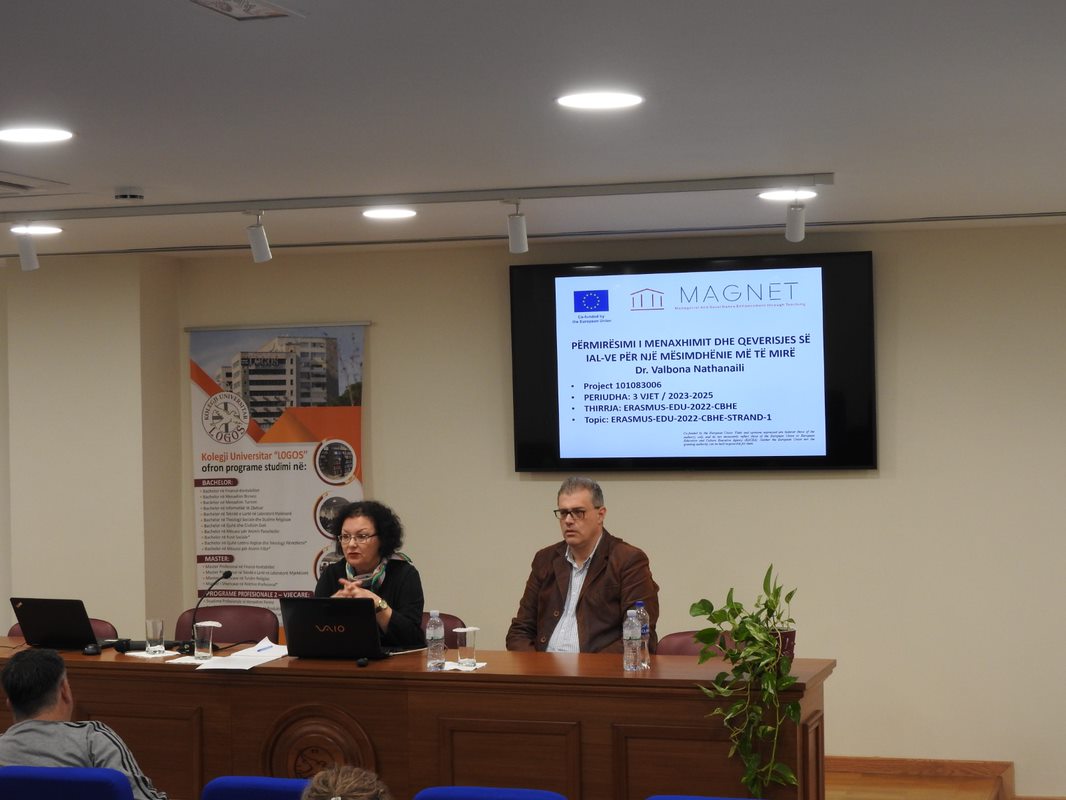
Internationalization of the institutin is one of the main goals of University College "LOGOS". In this context, on March 3, 2023, Amphitheater Hall "Magnet" project (co-funded by the European Union, won in the framework of the ERASMUS+ KA-2 call for capacity building in higher education) was introduced to the heads of the university, academic and administrative staff. In this project, University College "LOGOS" cooperates in every stage of the project led by Democritis University of Thrace, but leads the Work Package IV related to Quality Assurance.
"MAGNET" project (Managerial and Governance Empowerment through Teaching and Learning) focuses on the establishment of structures for the development of university pedagogy and modernization of teaching methods through know-how transfer from countries with functional Centers for Teaching and Learning to all countries of partner institutions, as well as aims to create a network of higher education institutions in the Balkans, BalkaNetUP (Balkan Network for University Pedagogy). University College "LOGOS" cooperates in every stage of the project led by Democritis University of Thrace, but leads the Work Package IV related to Quality Assurance.
This project consists on the cooperation of 12 universities from eight countries: Greece, Albania, Kosovo, Montenegro, Serbia, Bulgaria, North Macedonia and Bosnia-Herzegovina.
Prof. Assoc. Konstantinos Giakoumis, Dean of Faculty of Humanities and Linguistic Communication and Project Coordinator and Dr. Valbona Nathanaili, lecturer in Department of Pedagogy-Psychology introduced their colleagues with the work packages of each project, the importance of inclusion, as well as the positive impact that engagement of “LOGOS' in international projects, either as a partner or network leader, has in achieving institutional objectives.
Inclusion of University College “LOGOS” in European projects is part of the strategic plan for the internationalization of the institution.
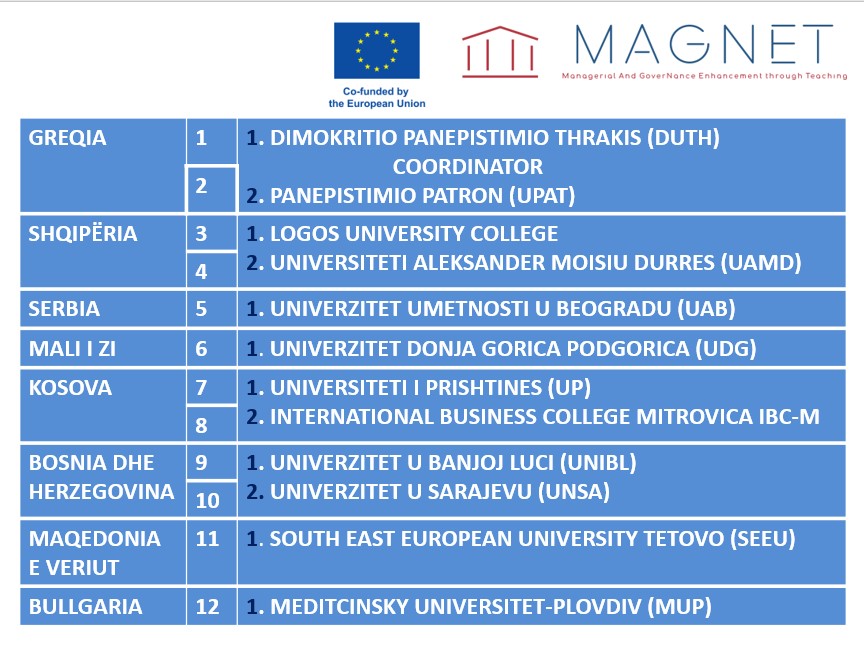
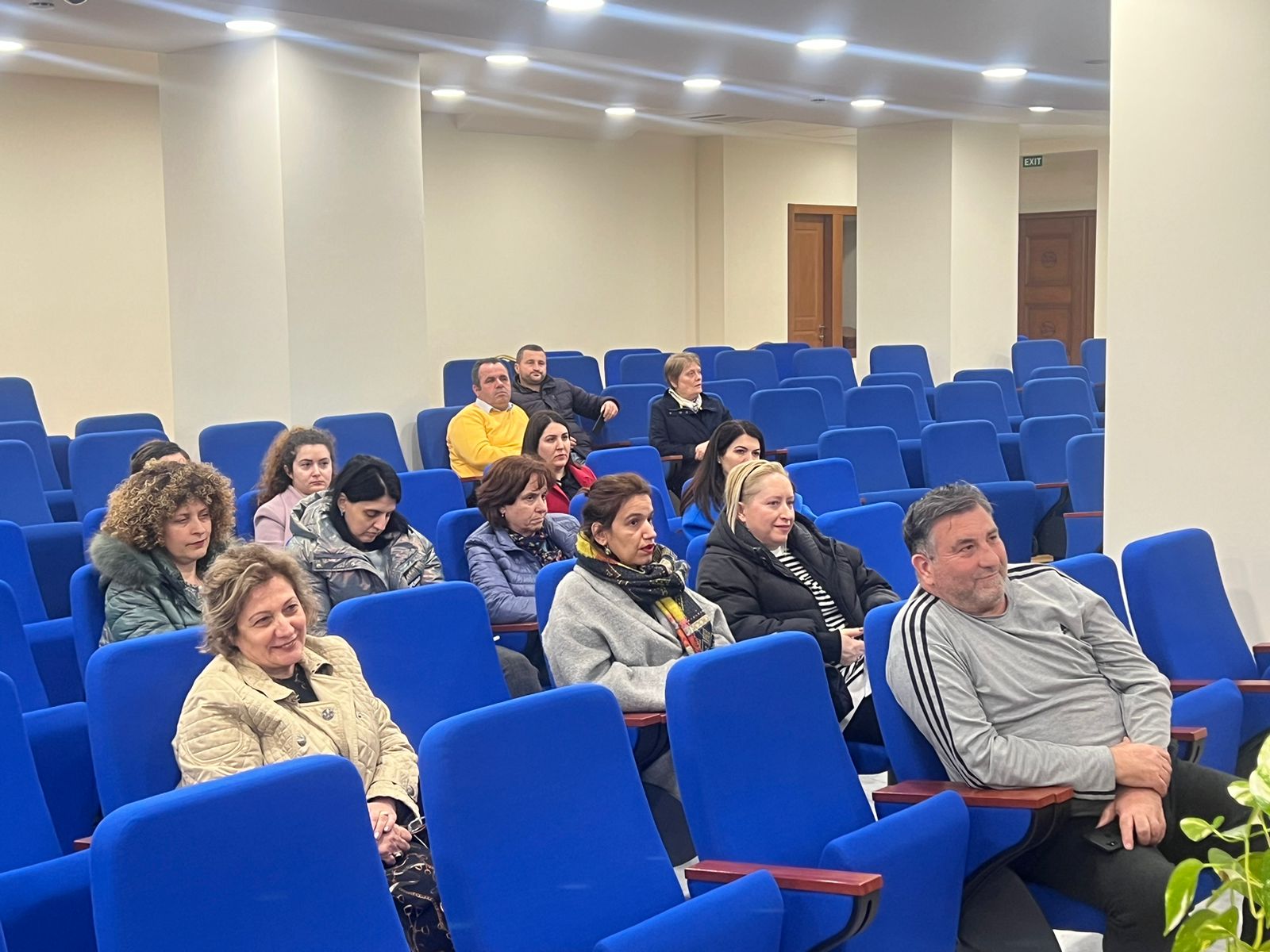
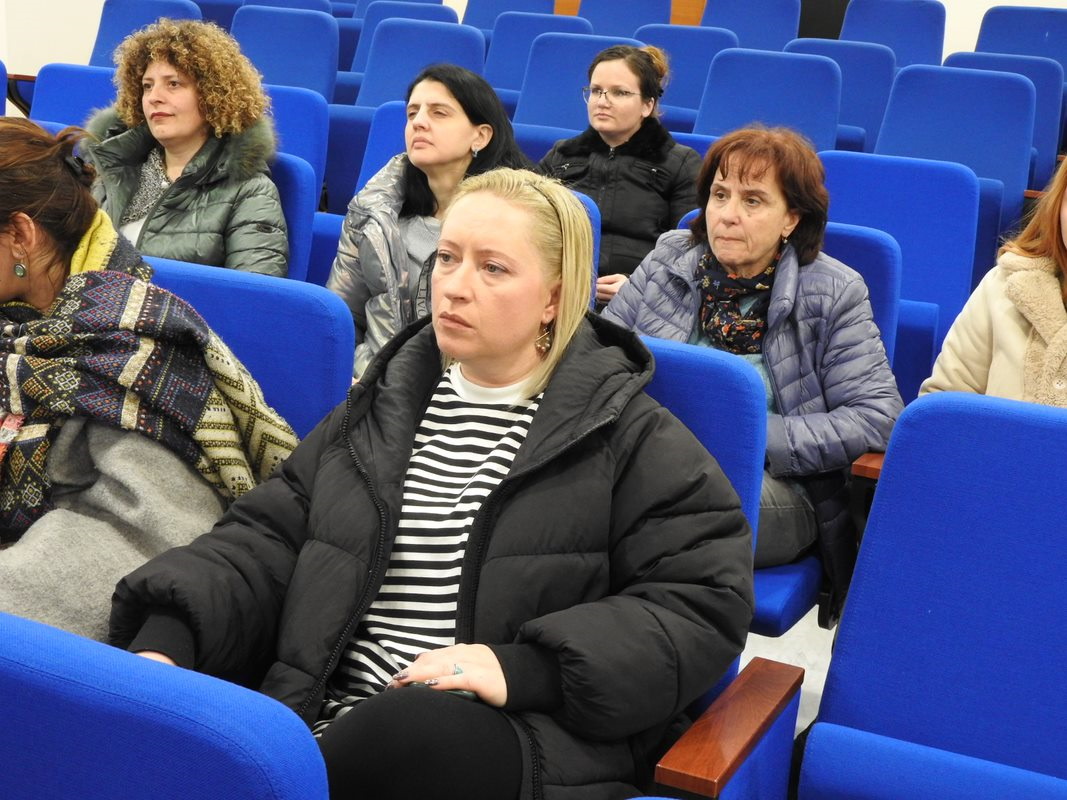
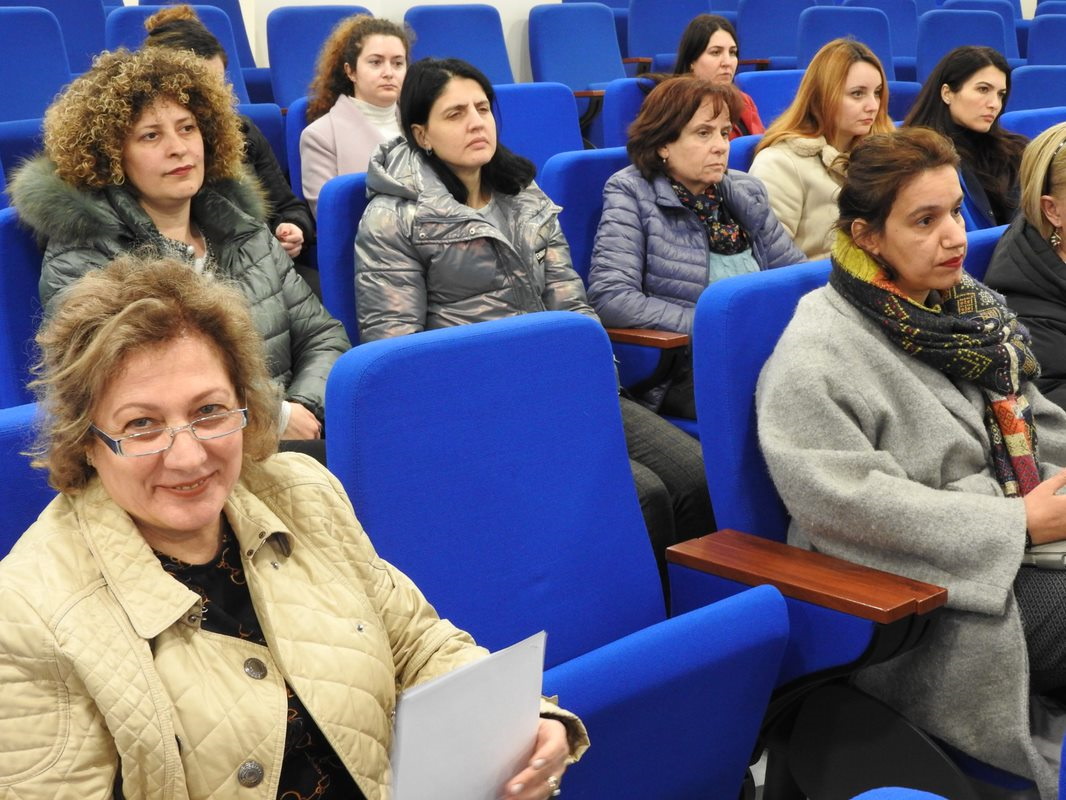
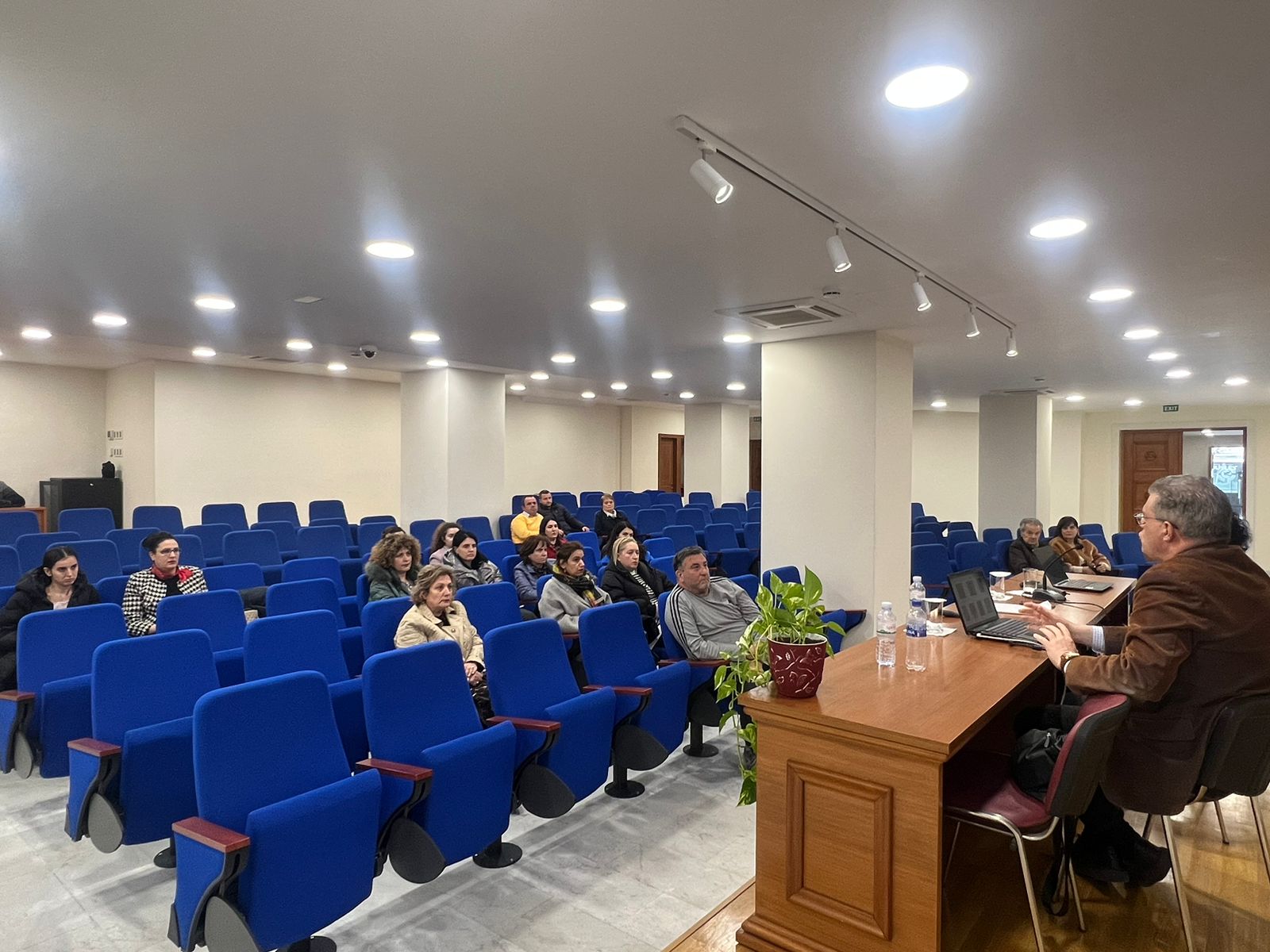
Strengthening International Staff and Student Mobility Offices in the West Balkans
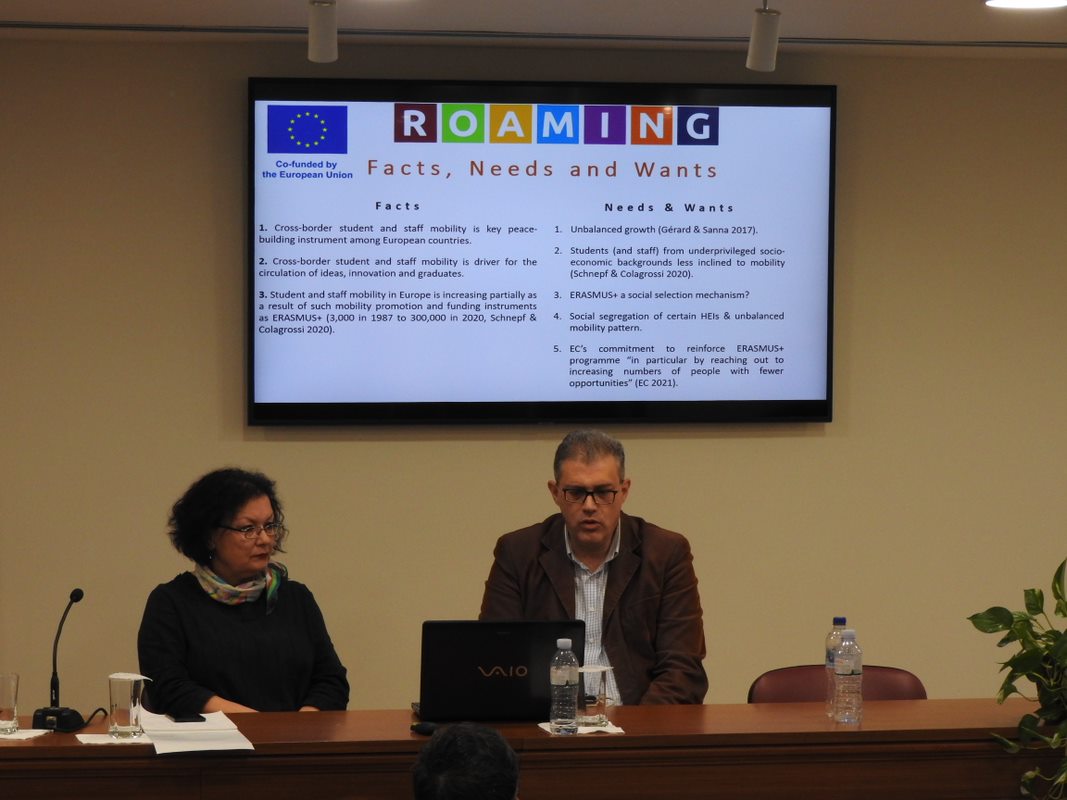
Internationalization of the institutin is one of the main goals of University College "LOGOS". In this context, on March 3, 2023, Amphitheater Hall “ROAMING” project (co-funded by the European Union, won in the framework of the ERASMUS+ KA-2 call for capacity building in higher education) was introduced to the heads of the university, academic and administrative staff. In this project, University College "LOGOS" leads the network of partner universities for the implementation of the "ROAMING" project.
"ROAMING" project (Strengthening International Staff and Student Mobility Offices in the West Balkans) focuses on increasing the capacities of students, academic and administrative staff to apply and benefit from the opportunities provided by the Erasmus+ program. Additionally, the project will contribute to the strengthening of the offices for international relations in the institutions of the region, partners of LOGOS in this project, first through an analysis of needs and requirements and then moving into concrete actions. The first meeting within the project will be held in the premises of LOGOS, on March 22-25. This project consists on the cooperation of 7 universities from 5 countries: Greece, Albania, Kosovo, North Macedonia and Montenegro.
Prof. Assoc. Konstantinos Giakoumis, Dean of Faculty of Humanities and Linguistic Communication and Project Coordinator and Dr. Valbona Nathanaili, lecturer in Department of Pedagogy-Psychology introduced their colleagues with the work packages of each project, the importance of inclusion, as well as the positive impact that engagement of “LOGOS' in international projects, either as a partner or network leader, has in achieving institutional objectives.
Inclusion of University College “LOGOS” in European projects is part of the strategic plan for the internationalization of the institution.
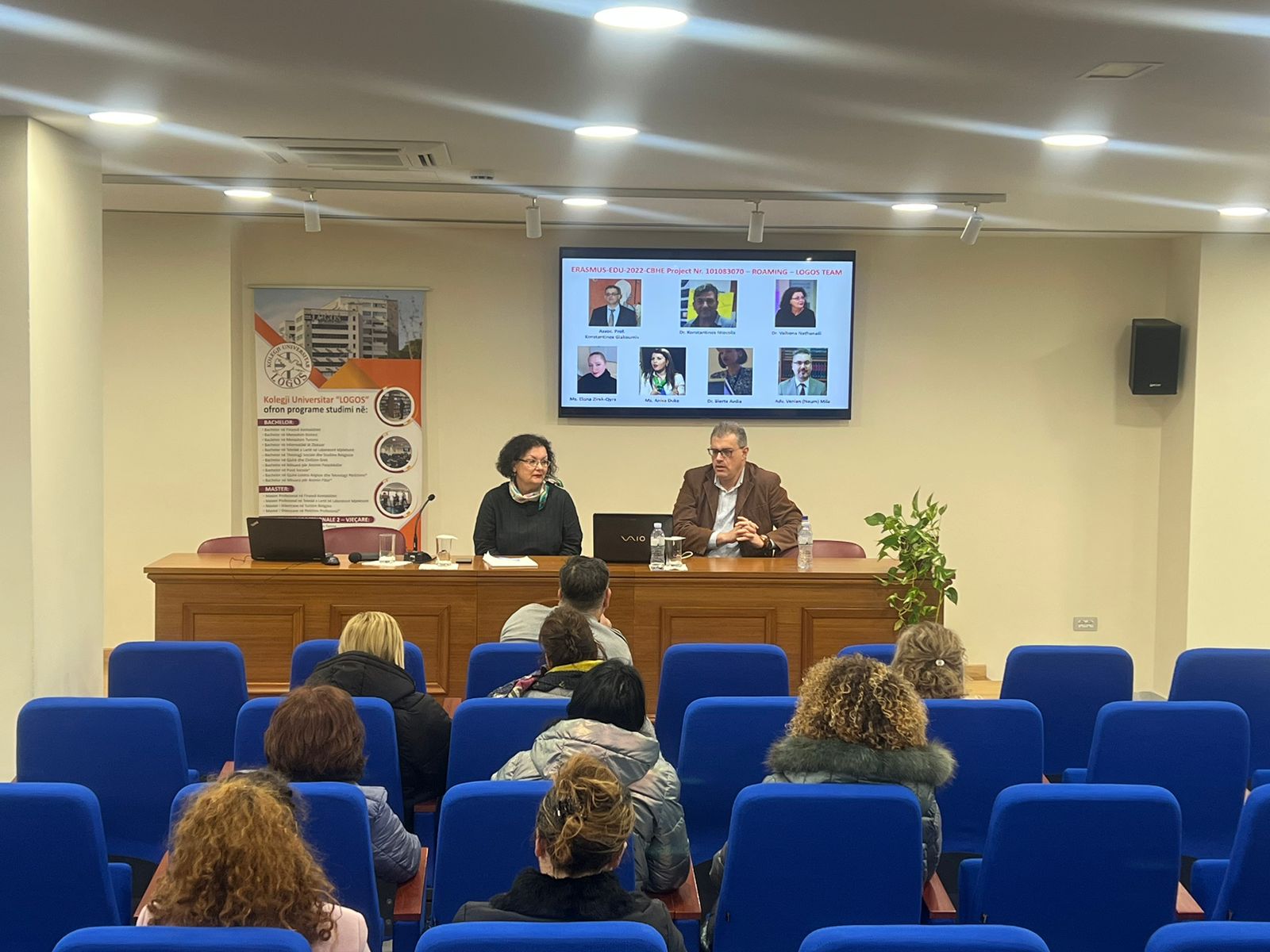
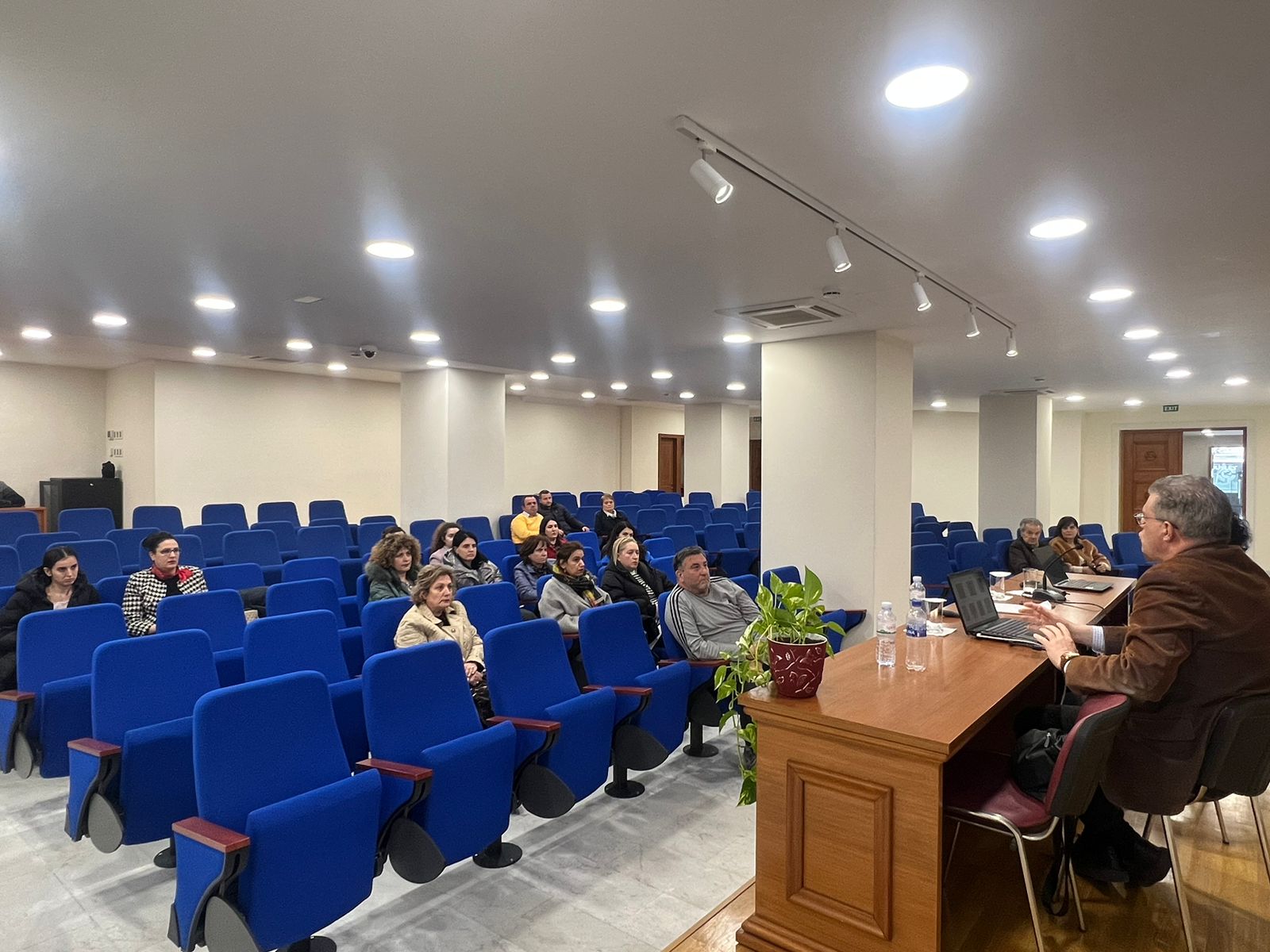
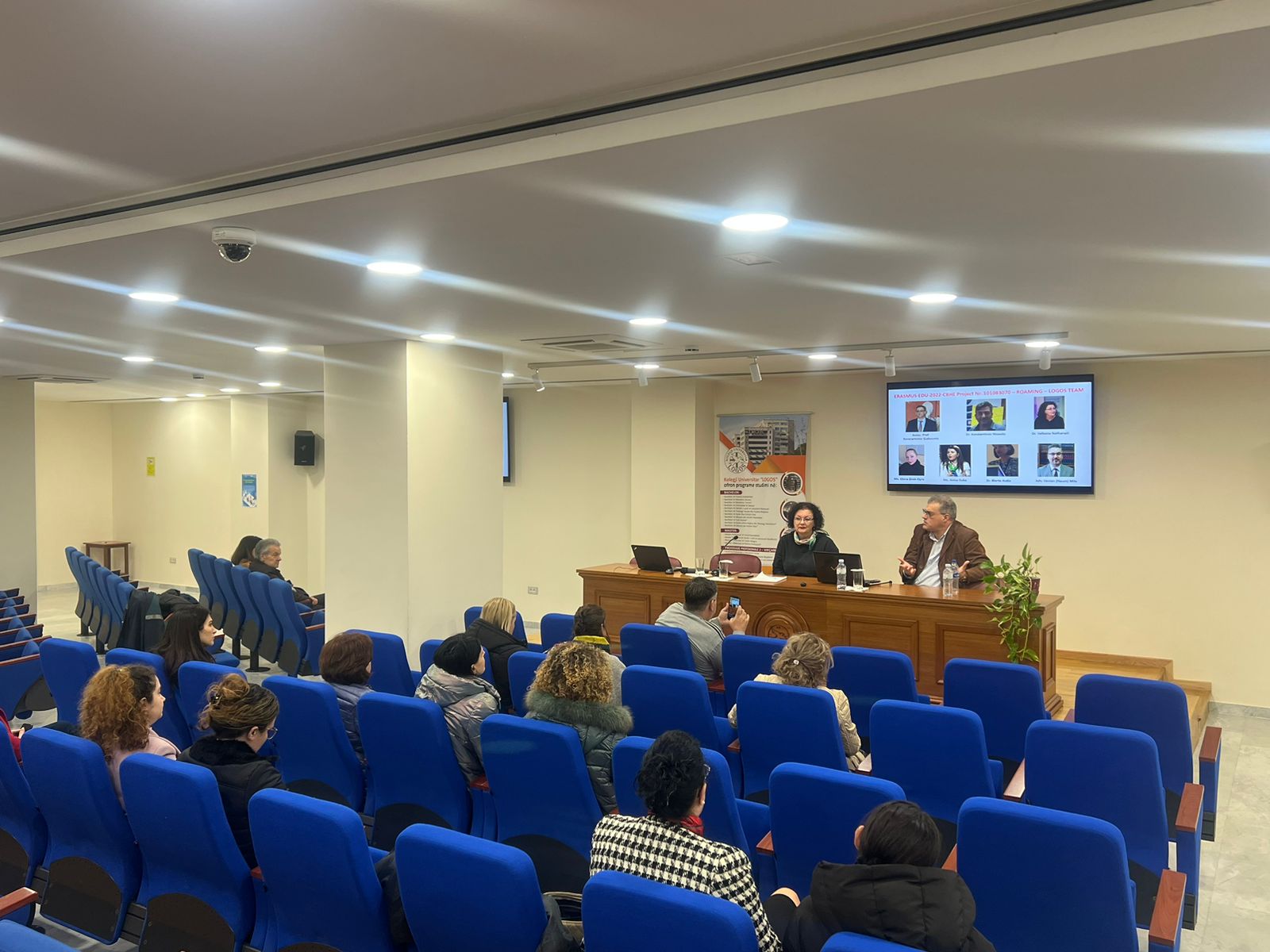
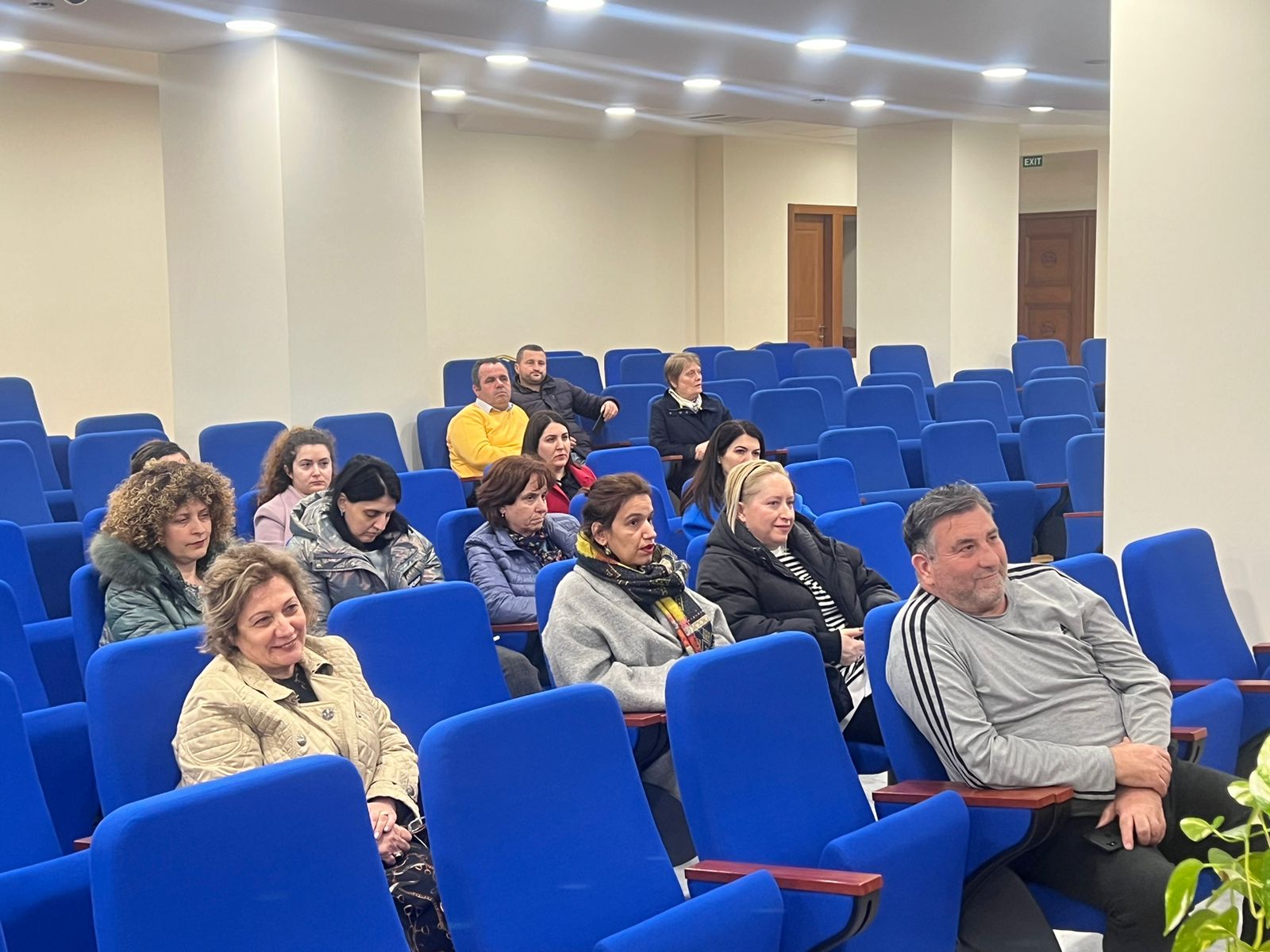
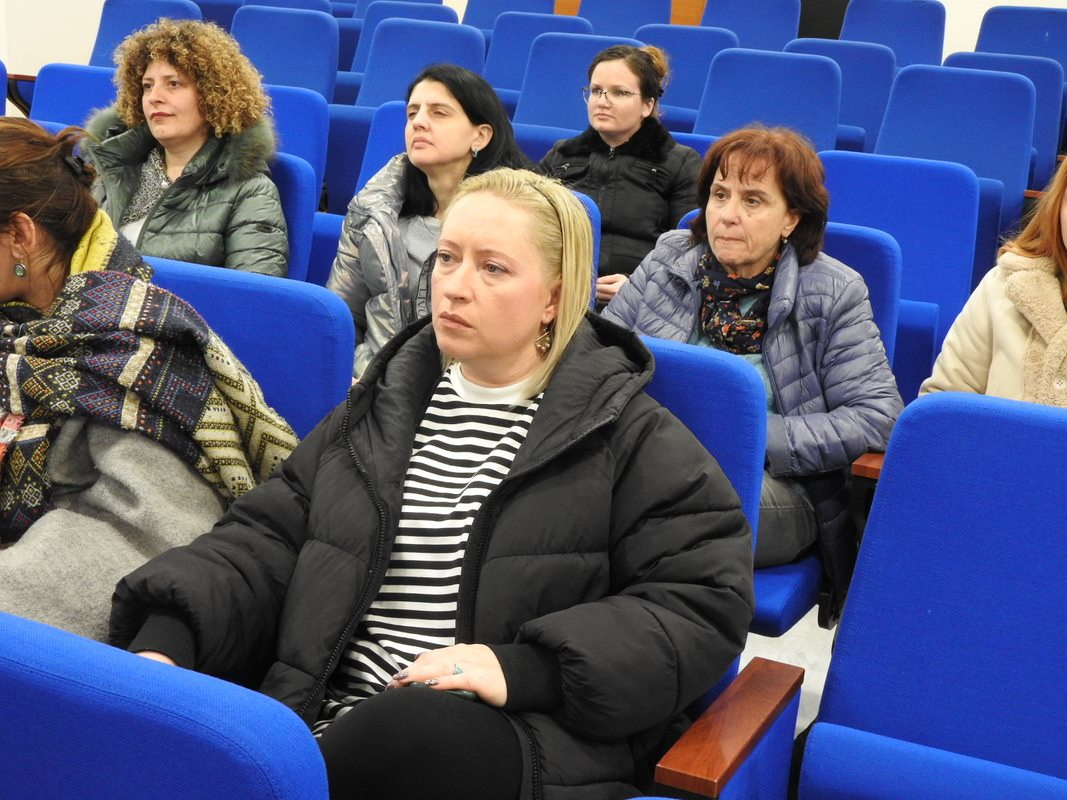
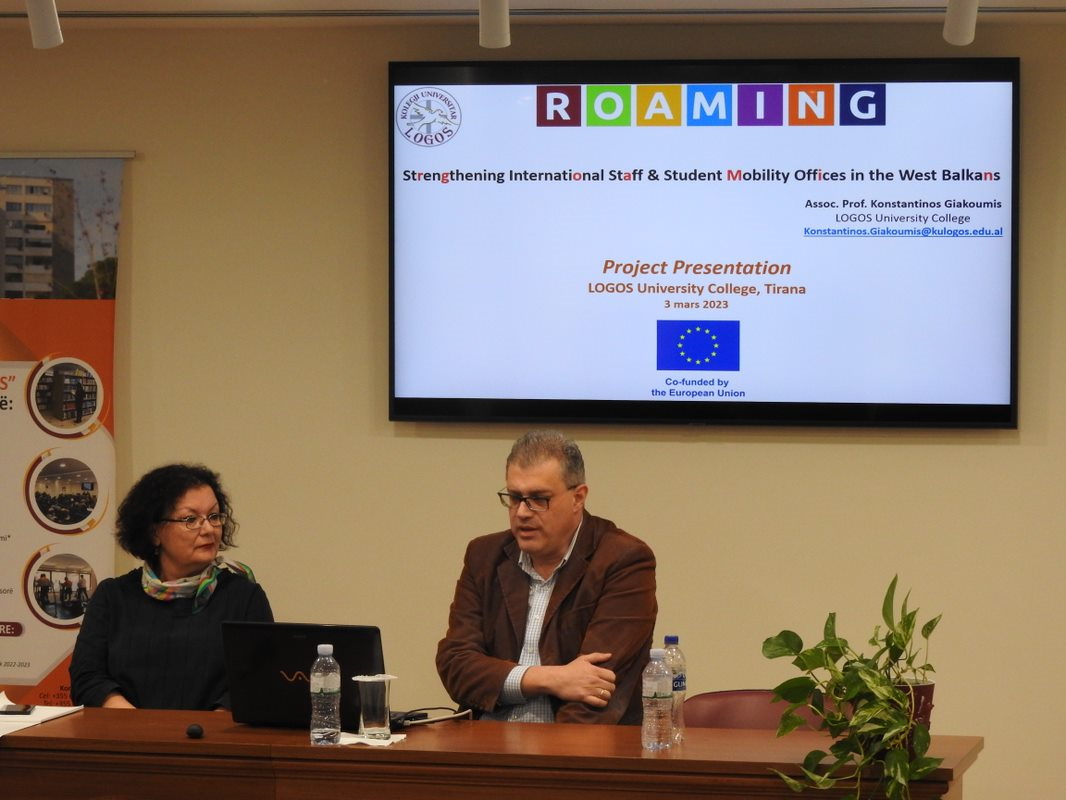
EARLY Project
Horizon Europe HORIZON-HLTH-2022- DISEASE-07-03 Project No. 101095392 - EARLY
Evaluating, Identifying and Reducing determinants of MHCs in Youth (EARLY)
EARLY project aims to reduce the burden of non-communicable diseases such as mental health conditions (MHC), especially depression, anxiety, stress disorders, substance use disorders and identify and reduce risky modifiable exposures for these conditions in youth. EARLY will pursue this goal through developing a comprehensive exposure matrix which can be adapted to emerging new risks, to understand youth, parents`, and stakeholders perceptions, we will conduct qualitative, interviews, by providing representative, multinational data on youth MHC and through developing, implementing and evaluating a multicomponent intervention. This will serve as an innovative model for promoting mental health and preventing MHC. EARLY is a mixed methods study which combines qualitative and quantitative methods. To provide a overview on youth mental health measures we will review measures, to provide data on exposure factors and whether exposure estimates vary by country, age, and gender, we will review studies and identify and merge available data on youth mental health; to provide insights on perceptions we will conduct focus groups with end-users. To provide representative data on youth MHC we will conduct a cross-sectional survey which are the baseline data for the multicomponent pilot intervention in five selected countries. To provide data on effectiveness and sustainability of interventions to reduce MHC we will conduct a multicomponent intervention. The results will be a a) model of youth mental health, b) a matrix of exposures, c) insights and understandings on end-users perceptions of youth mental health, d) knowledge on services for use in the European region and identification of needs; e) representative data on youth mental health which can be easily accessed by researchers and policymakers; f) data on effectiveness and sustainability of interventions to reduce both exposures and MHC in youth and finally g) non-communicable diseases risk reduction in adolescence and youth.
Consortium Membership:
- HOCHSCHULE EMDEN/LEER (HS EL),
- KOLEGJI UNIVERSITAR LOGOS,
- UNIVERSITETI I MJEKESISE TIRANE (UMT),
- ASSOCIATION OF SCHOOLS OF PUBLIC HEALTH IN THE EUROPEAN REGION (ASPHER),
- GLOBAL ALLIANCE OF MENTAL ILLNESS ADVOCACY NETWORKS EUROPE AISBL (GAMIAN),
- UNIVERSITÉ LIBRE DE BRUXELLES (ULB),
- TECHNISCHE UNIVERSITAET MUENCHEN (TUM),
- UNIVERSITETI I TEL AVIVIT (TAU),
- UNIVERSITA DEGLI STUDI DI CAGLIARI (UNICA)
- SOCIETATEA PSIHIATRILOR, NARCOLOGILOR, PSIHOTERAPEUTILOR SI .PSIHOLOGILOR CLINICIENI DIN REPUBLICA MOLDOVA (SPNPPC),
- EUROPEAN PUBLIC HEALTH ASSOCIATION (EUPHA),
- GDANSKI UNIWERSYTET MEDYCZNY (GUMED),
- INSTITUTO DE SAUDE PUBLICA DA UNIVERSIDADE DO PORTO (ISPUP),
- UNIVERSITATEA DE MEDICINA SI FARMACIE DIN CRAIOVA (UMFCV),
- UNIVERSITET U NOVOM SADU MEDICINSKI - FAKULTET SA POTPUNOM .ODGOVORNOSCU (UNS-MF),
- STICHTING WONCA EUROPE (WONCA EUROPE),
- FUNDACION PRIVADA INSTITUTO DE SALUD GLOBAL BARCELONA (ISGLOBAL),
- UNIVERSITETI AUGSBURG (UAU)
Project Duration: 48 Months (01.12.2023-30.11.2027)
DiLanEdu-WB
Digital Transformation in Language Study and Education in the WB
ERASMUS+ CBHE (2024) Project No. 101179642
Project Summary
In the Digital Age, as children spend increasingly more time in the digital world at the expense of time spent in physical interaction with other children, digitalization of language instruction is imperative to improve oral communication, language skills and reduce anxiety in speaking tasks. The necessity to integrate digital methods and tools in language education and study has been identified in the West Balkans, where strategies have been developed for digital transformation setting digital competencies as a primary aim in the transformation of their educational systems. Common issues identified therein include the inadequate qualification of teachers, including language teachers, to integrate digital tools and methods in the teaching and learning process, as well as the absence of adequate digital content in WB languages.
Hereupon, this project aims to improve the quality of language education in the WB Higher Education Area by strengthening the participating HEI language teacher-training curricula with ICTs. The project will also establish and operationalize specialized laboratories. The particular objectives of the project are as follows:
- A. The updating and enhancing existing curricula to incorporate digital methods and tools in language teaching, learning and research in new & innovative transformations of older disciplines (e.g., computational linguistics) and the development of new micro credentials training programmes for pre-university education teachers in the same discipline.
- B. The establishment or enhancement of specialized laboratories of digital methods and tools in language teaching, learning and research.
- C. The establishment of a network of institutions and individuals sharing similar interests in using and promoting digital tools in language teaching & learning, as well as in linguistic scientific research.
The project will thus develop capacities in the following three directions: 1. Digital Language Education. 2. Instruction of language skills & intercultural skills in a digital environment. 3. Digital transformation in discourse & linguistic analysis.
Project Partners
- Logos University College, Albania, Coordinator.
- University of Tirana, Albania, Partner.
- "Eqrem Çabej" University of Gjirokastrër, Albania, Partner.
- University of Banja Luka, Bosnia & Herzegovina, Partner.
- University of Sarajevo, Bosnia & Herzegovina, Partner
- University of Prishtina, Kosovo, Partner.
- “Isa Boletini” University of Mitrovica, Kosov, Partner.
- Mediterranean University of Podgorica, Montenegro Partner.
- University of Western Macedonia, Greece, Partner.
- OTTO-VON-GUERICKE University of Magdeburg, Germany, Partner.
- British School of Tirana, Albania, associated partner.
- Faik Konica School, Kosovo, associated partner.
- “Trol” Nursery School, Bosnia & Herzegovina, associated partner.
- “Miloje Dobrasinovic” High School, Montenegro, associated partner.
- TESSERA Information Systems Ltd., Greece, associated partner.
WB-Edu4Migration
Mitigating Migration Challenges in the Western Balkans: Bridging the Skills Gap for Social Care Providers via Curricula Enhancement and Micro Credential Development
ERASMUS+ CBHE (2024) Project No. 101179745
Project Summary
The project proposal is driven by the recognition of a critical gap in the competencies of social workers in Kosovo and Albania, particularly concerning their ability to effectively support migrant populations. Despite the growing importance of addressing migration issues within these countries, educational institutions offering social work programs have yet to fully incorporate comprehensive coursework on migration studies and related subjects. This educational gap hinders social workers' ability to understand and address the unique challenges faced by migrant populations, necessitating targeted interventions to bridge this gap. The primary aim of the project is to enhance the competencies of students and social workers in Kosovo and Albania to better support migrant populations. This will be achieved through a multi-phased approach that includes educational reform, the development of digital micro credential courses, and ongoing capacity-building initiatives. By addressing both foundational and ongoing training needs, the project seeks to empower future and current social workers with the knowledge, skills, and resources necessary to effectively serve migrant communities and advocate for their needs within the social work profession. The project's success will lead to significant benefits: enhanced higher education curricula will better prepare future social workers to support migrant populations, while digital micro credential courses will offer practicing social workers flexible professional development opportunities. Empowered social workers will provide comprehensive support to migrants, promoting inclusive practices and positive outcomes for both migrants and host communities in Kosovo and Albania.
Project Partners
- AAB College, Kosovo, Coordinator.
- International Business College Mitrovica, Kosovo, Partner.
- “FEHMI AGANI” University of Gjakova, Kosovo, Partner.
- Institute for Research, Education and Social Development, Kosovo, Partner.
- University of Tirana, Albania, Partner.
- University “Marin Barleti,” Albania, Partner.
- Logos University College, Albania, Partner.
- Institute of Roman Culture in Albania, Partner.
- UCL Erhvervsakademi & Professionshojskole SI, Denmark, Partner.
- Fachhochschule Salzburg GMBH, Austria, Partner.
- Libera Universita di Lingue e Comunicazione IULM, Italy, Partner.